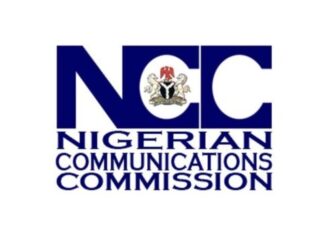By Jeph Ajobaju, Chief Copy Editor
GIGL has teamed up with JET Motor to launch electric vehicles (EVs) for deliveries in Lagos and build on the entry of Hyundai Kona, the first locally assembled electric car Vice President Yemi Osinbajo has test driven in Abuja.
The partnership is based on an agreement GIGL and JET Motor reached about two years ago to push free carbon initiative.
GIGL, a courier and logistics firm, is the first to make this move in Nigeria and the EVs are 100 per cent electric vans well suited for Nigerian roads.
GIGL will receive a one-year maintenance of the vehicles and training of personnel in use and maintenance, per Nairametrics reporting.
JET Motor, founded in 2018, has produced about 500 units of cars and has an EV plant around Epe in Lagos with capacity to assemble between five and seven vehicles a day.
Its Director of Sales and Marketing, Rupani Sanjay, told Nairametrics that the EVs have a European design, with Asian technology in the mix, and they use a lithium-ion battery that has a lifespan of about five years.
The battery has a 240-km per charge for a full day’s work, factoring in the heavy traffic in the Lagos metropolis. Under normal circumstances, however, it can cover 300km.
“People have asked me, what if you spend 10 hours in traffic? My reply was that the battery will not discharge at that same rate when the vehicle is stationary,” explained Oluwemimo Joseph, JET Motor Strategy and Projects Head and Chief Financial Officer.
“So, it means even if you spend 10 hours in traffic the rate of discharge will be like 2 per cent. So, you can easily cover 240 kilometres if the battery is fully charged.”
GIGL has a charging facility at its logistics digital hub in Gbagada, Lagos which can charge an EV to full charge in two hours but the company said it will only use EVs for deliveries in Lagos because of a lack of charging stations in other states.
Call for Abuja’s contribution
GIGL Director of Operations Services and Hubs, Ocholi Etu, recounted that “this started about two years ago when we reached out to JET Motors to help us push our carbon-free initiative.
“By carbon-free, I mean we are looking at having total electric vehicles do our deliveries all around Nigeria. Electric vehicles have 70 per cent lower maintenance cost compared to the internal combustion engine (ICE).”
Ocholi said EVs are a form of appeal to Abuja to meet industry halfway in the drive for a greener Nigeria.
Driving electric car excites Osinbajo
Hyundai Kona, a product of Stallion Motors Osinbajo test drove in Abuja on Tuesday, was launched in November 2020 by Lagos State Governor, Babajide Sanwo-Olu.
It was unveiled in Abuja in February this year by National Automotive Design and Development Council (NADDC) Director General, Jelani Aliyu.
NAN reports that Osinbajo drove the car during an exhibition tour of made-in-Nigeria products at the opening ceremony of a five-day Nigeria @ 60 Expo being held at Eagle Square, Abuja.
The event is organised by the Inter-Ministerial Committee on Nigeria @ 60 in collaboration with Business Visa and Training.
“A very good drive; fantastic; it just shows what is possible. I am glad to see that this is an assembled in Nigeria electric car.
“You can literally charge it anywhere; I think it is a very fantastic innovation; fantastic product, and I can tell because I drove it,’’ Osinbajo said.
Showcase of what Nigeria can produce
Secretary to the Government of the Federation, Boss Mustapha, explained that the exhibition showcases what Nigeria can produce with local raw materials.
He said the aim is “to compliment the efforts of the federal government at ensuring that we produce what we eat and eat what we produce. In this context, we are to produce what we use and use what we produce.’’
Mustapha enthused that made-in-Nigeria products will attract several benefits and help raise Gross Domestic Product (GDP)
Nigerians now proudly use products made in the country and this will create more jobs and enhance GDP growth, he added.












